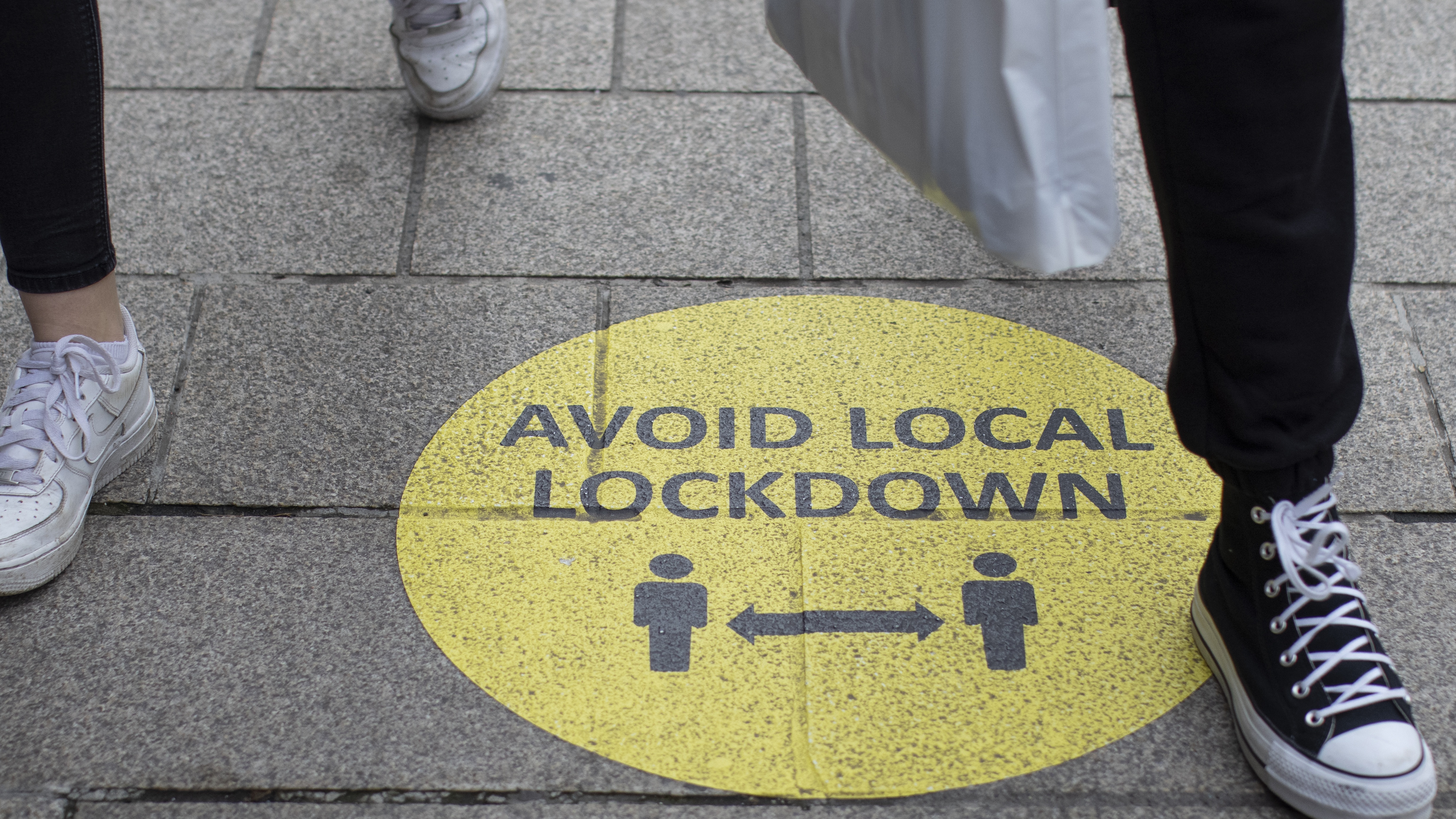How locking down streets could stop new Covid variants
Localised restrictions may be ‘most effective measure possible’ for stopping outbreaks

A free daily email with the biggest news stories of the day – and the best features from TheWeek.com
You are now subscribed
Your newsletter sign-up was successful
Locking down individual streets could be an important step in preventing the emergence of new variants of Covid-19, a leading expert has said.
Dr Jeffrey Barrett, director of the Covid-19 Genomics Initiative at the Wellcome Sanger Institute, said it’s important the government deploys “the most effective measures possible” to stem further outbreaks.
Appearing on BBC Radio 4’s Today programme, Dr Barrett said that shutting down streets “certainly could” have an impact, adding: “One of the trickiest parts of this virus overall is… some individuals who are infected don’t have symptoms and so they can transmit.
The Week
Escape your echo chamber. Get the facts behind the news, plus analysis from multiple perspectives.

Sign up for The Week's Free Newsletters
From our morning news briefing to a weekly Good News Newsletter, get the best of The Week delivered directly to your inbox.
From our morning news briefing to a weekly Good News Newsletter, get the best of The Week delivered directly to your inbox.
“Trying to use interventions that might stop asymptomatic transmission may well be an important part of keeping outbreaks of these new variants to be as absolutely small as possible.”
The Sun reports that “extreme measures” could be on the agenda after “more than half a million adults in south London” were offered Covid PCR tests amid a small outbreak of the South Africa variant.
A separate case was also discovered in Barnet, north London, yesterday, however the Department of Health told the paper that it was “unrelated to other clusters” and “had been isolated and the person’s contacts traced”.
Because there is a “chance” that emerging variants will be “less well neutralised” by vaccines, “it’s really important to be able to try to keep that number as close to zero as possible”, says Dr Barrett, The Telegraph reports.
A free daily email with the biggest news stories of the day – and the best features from TheWeek.com
“As the restrictions are lifted the key thing to watch will be, does that number ever go up sort of week by week,” he said. “And if so it’s really important to deploy the most effective measures possible to contain those outbreaks.”
-
 Political cartoons for February 18
Political cartoons for February 18Cartoons Wednesday’s political cartoons include the DOW, human replacement, and more
-
 The best music tours to book in 2026
The best music tours to book in 2026The Week Recommends Must-see live shows to catch this year from Lily Allen to Florence + The Machine
-
 Gisèle Pelicot’s ‘extraordinarily courageous’ memoir is a ‘compelling’ read
Gisèle Pelicot’s ‘extraordinarily courageous’ memoir is a ‘compelling’ readIn the Spotlight A Hymn to Life is a ‘riveting’ account of Pelicot’s ordeal and a ‘rousing feminist manifesto’
-
 A Nipah virus outbreak in India has brought back Covid-era surveillance
A Nipah virus outbreak in India has brought back Covid-era surveillanceUnder the radar The disease can spread through animals and humans
-
 Covid-19 mRNA vaccines could help fight cancer
Covid-19 mRNA vaccines could help fight cancerUnder the radar They boost the immune system
-
 The new Stratus Covid strain – and why it’s on the rise
The new Stratus Covid strain – and why it’s on the riseThe Explainer ‘No evidence’ new variant is more dangerous or that vaccines won’t work against it, say UK health experts
-
 RFK Jr. vaccine panel advises restricting MMRV shot
RFK Jr. vaccine panel advises restricting MMRV shotSpeed Read The committee voted to restrict access to a childhood vaccine against chickenpox
-
 RFK Jr. scraps Covid shots for pregnant women, kids
RFK Jr. scraps Covid shots for pregnant women, kidsSpeed Read The Health Secretary announced a policy change without informing CDC officials
-
 New FDA chiefs limit Covid-19 shots to elderly, sick
New FDA chiefs limit Covid-19 shots to elderly, sickspeed read The FDA set stricter approval standards for booster shots
-
 RFK Jr.: A new plan for sabotaging vaccines
RFK Jr.: A new plan for sabotaging vaccinesFeature The Health Secretary announced changes to vaccine testing and asks Americans to 'do your own research'
-
 Five years on: How Covid changed everything
Five years on: How Covid changed everythingFeature We seem to have collectively forgotten Covid’s horrors, but they have completely reshaped politics